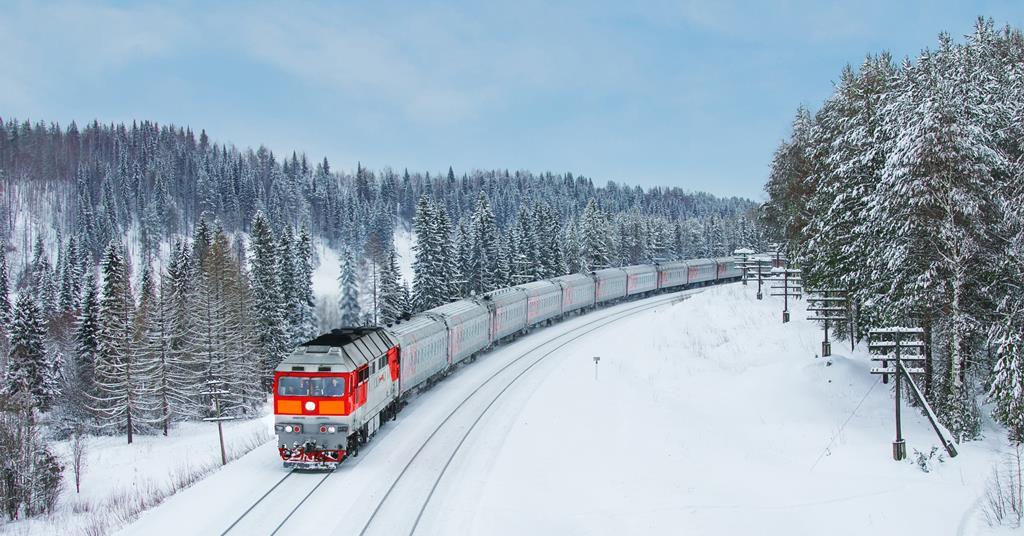Red Sea crisis resurrects China-Europe rail freight transit through Russia

The route, which lost its importance in 2022 because of sweeping western sanctions imposed on Moscow in response to the Ukrainian conflict, had been actively used in previous years for the delivery of automotive products, including finished vehicles.
For example, under contract with the RZD, Mercedes-Benz began finished vehicle deliveries from Bremerhaven, Germany, to Chongqing, China in 2018.
In the first quarter of 2024, the China-to-Europe container transit through the territories of Russia, Kazakhstan and Belarus perked up by 44% compared with the previous year to 90,000 TEU, according to Alexey Shilo, RZD deputy general director.
The trend is expected to gain traction in the coming months. Shilo said RZD anticipated the cargo flows to rise by 30-40% above the previous year’s volumes, explaining that there were many factors making the route attractive for shippers before the 2022 embargo.
With a transit time ranging between five and seven days, the China-to-Europe railway route is a clear winner in speed, being three times faster than sea routes through the Red Sea and Suez Canal, which have recently been marred by Houthi attacks.
Compared with alternative marine routes along the southwest coast of Africa, the transit delivery by rail is nearly five times faster, Shilo noted, indicating that time savings were the key factor pushing Chinese and European businesses to set their sights on Russian railways again.
“From the point of view of expensive goods and those requiring urgent supply, where the delivery time is paramount, our route remains the most attractive,” Shilo indicated.
Fesco, a prominent Russian transport company, indicated that the volume of supplies from Asian countries to Belarus also jumped by 35% in the first quarter of 2024, compared with the fourth quarter of 2023. A part of that cargo is also believed to be destined for the European market.
The company disclosed that the largest product categories were finished vehicles and automotive kits, as well as various equipment and machinery.
Fesco expects supplies to pick up in the second quarter of 2024, though it warns that further growth may be limited by infrastructural constraints, primarily bottlenecks in the Eastern Railway Polygon, comprised of the Baikal-Amur Line Railway Line and Trans-Siberian Railway.
Sting of sanctions
Container traffic between China and Europe peaked in 2021 when 1.1m TEUs were transported through Russia.
In October 2022, RZD rang an alarm bell over a slump in traffic. During the first nine months of 2022, the volumes plummeted by 35% against the previous year, RZD reported, not providing concrete figures. The Russian railway giant has never disclosed the figures for the fourth quarter of 2022 or 2023.
RZD was among the first legal entities to enter EU sanction lists just days after the hostilities in Ukraine erupted. The restrictions, among other things, involved export embargoes against railway equipment, which the company warned created a rise in the security and safety of transport of some Russian trains.
Under the sanctions, European shippers, freight forwarders, and logistics companies were barred from conducting any transactions with the railway company or using its assets and equipment. RZD has never said anything about how the sanctions impacted its order book.
Mikhail Burmistrov, general director of Infoline-Analytics, a local think tank, told local news outlet Vedomosti that the cargo flow on this route will not reach the level of 2021 because of sanctions. The restrictions affect certain cargo categories, including luxury finished vehicles and concrete companies engaged in the transit business, particularly TransContainer.
In 2024, traffic volumes jumped primarily because of a low base effect, bouncing back from the turmoil of the previous two years. The second quarter of 2024 will see relatively positive dynamics, but the sustainability of the trend remains questionable, especially in the context of growing sanctions pressure on Russia, said a confident Burmistrov.
Pavel Ivankin, president of the Transportation and Infrastructure Research Center, assumed that the recovery trend could be sustained through the end of 2024, so cargo volumes this year will be 50% higher than those of 2023. He added that the Red Sea crisis has had a certain impact on the growth of container transit through Russia, but there is no absolute dependence, meaning that the demand will not disappear if and when the threat of Houthi attacks is eliminated.
Related
Zelenskyy reiterates call for air truce after huge Russian attack…
We need Russia to stop attacks, Zelenskyy says, backing calls for truce in air, at seaUkrainian president Volodymyr Zelenskyy has responded to overnight attacks
Europe scrambles to rearm as Trump threatens security guarantees and…
CNN — European leaders have vowed to rearm the continent at historic emergency talks h
Russia launches ‘massive’ attack on Ukraine after Europe rushes to…
Ukraine's energy and gas infrastructure came "under massive missile and drone shelling" by Russia on Friday, a Ukrainian minister said."The energy and gas infra
American severance may be averted, but Europe’s leaders must fear…
With a mixture of regret, laced with incredulity, European leaders gathered in Brussels to marshal their forces for a power struggle not with Russia, but with t












